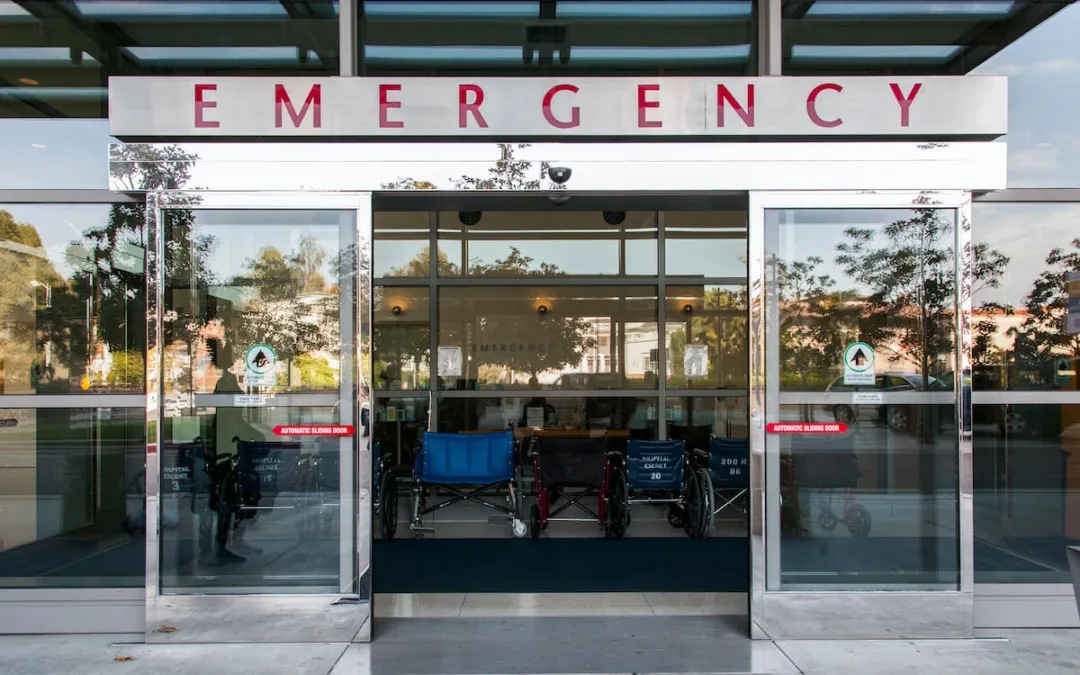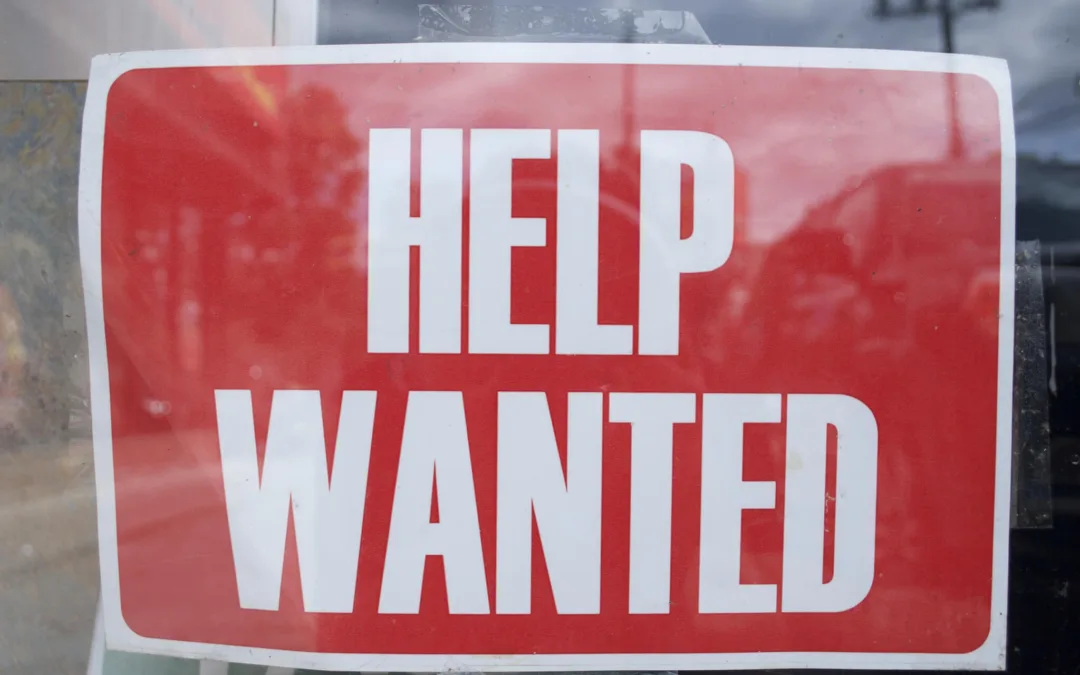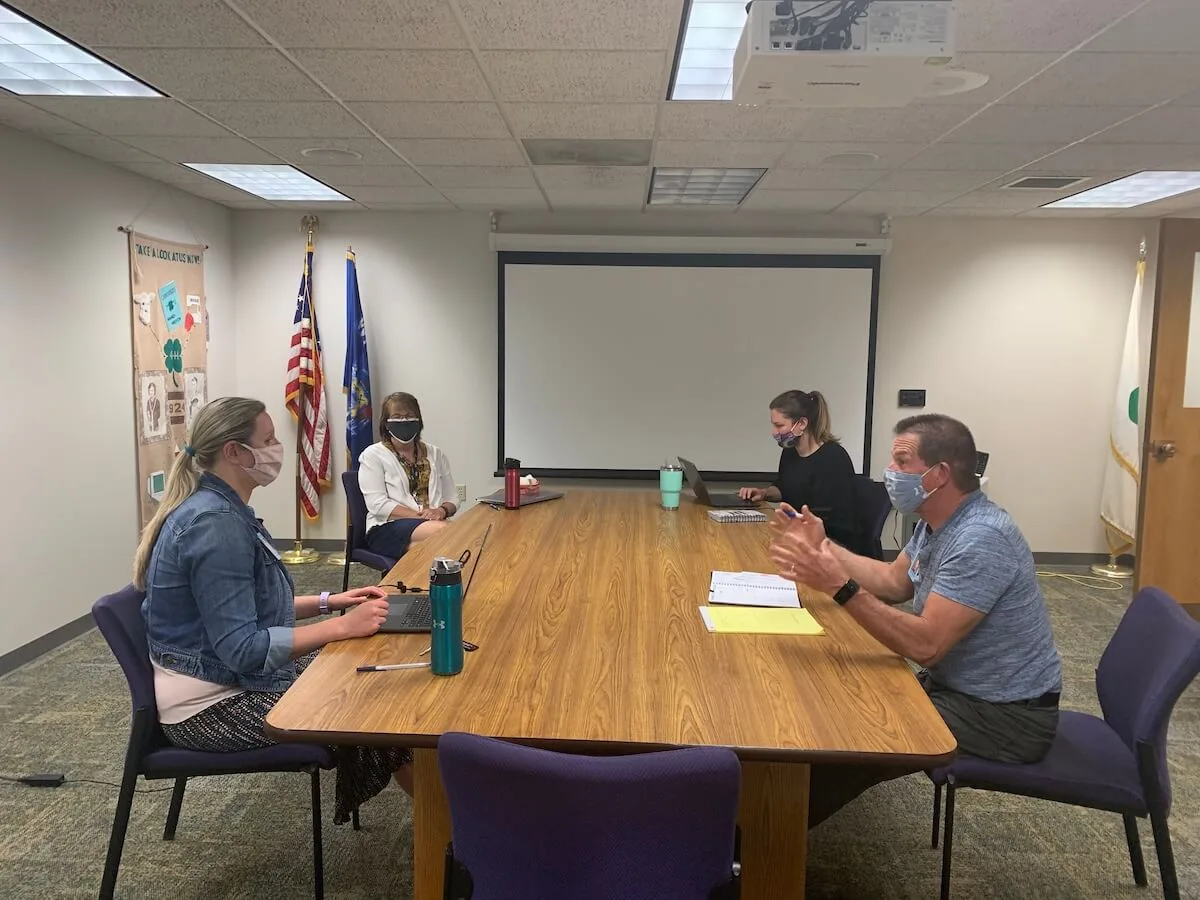
#image_title
#image_title
Incidents increasing since statewide order overturned by Wisconsin Supreme Court.
As the public face of the coronavirus pandemic in Chippewa County, Angela Weideman has been confronted by not only questions about public health measures intended to slow the spread of the virus but pushback against them that has, in several instances, prompted concerns for her safety.
Weidemann, director of the Chippewa County Health Department, said two police chiefs have warned her to be careful when she leaves the courthouse building where she works and heads to her nearby vehicle after they became aware of threats against public health officials like her.
Likewise, she said, County Administrator Randy Scholz expressed concerns about Weideman’s safety after an anonymous text message sent on June 17 falsely claimed that Weideman was supporting an initiative by Gov. Tony Evers to pay counties $250,000 to reinstate safer-at-home orders. The governor’s office never proposed that action.
On another occasion, Weideman said a man warned her “You’d better be careful what you’re saying. You’d better watch yourself,” in reference to information she shared with the public related to the state’s safer-at-home order.
“They said ‘when you leave work, be really mindful when you walk to your car,’ ” Weideman said of the instructions the police gave her. “They were worried about my safety, worried this (COVID-19) situation was heating up, and that someone might take some kind of action against me.”
Weideman isn’t alone.
UpNorthNews contacted public health officials across the state, with 11 reporting they have felt pushback, anger, and have had threats directed against them as they attempt to enact measures to prevent the spread of COVID-19.
They told UpNorthNews that vocal opposition to such public health recommendations as wearing face masks in public places and maintaining social distance from others has become increasingly commonplace since the May 12 state Supreme Court decision overthrowing an extension of the safer-at-home order by Gov. Tony Evers’ administration.
Growing resistance by many to health practices designed to reduce the prevalence of the virus is happening even as a surge of COVID-19 sweeps across Wisconsin. On Tuesday the state recorded a one-day record-high number of cases, 964, the fourth day of the past six to set a new record. Wednesday’s 821 cases represents the fourth-highest daily total, and 60 counties are now designated as having high activity levels of the virus.
Health directors said they have fielded angry phone calls and email messages from those upset at being told to abide by COVID-19 regulations. Some report being called out in public for endorsing wearing masks and social distancing. Others said they have been chastised behind closed doors by local government officials worried that too many rules will hurt businesses. And like Weideman, they have received messages threatening their safety.
“Wherever there is social media, (health department directors) are now dealing with examples of very harsh comments” related to COVID-19, Eau Claire City-County Health Department Director Lieske Giese said.
Giese said she purposely avoids reading comments related to her actions as health department director. But her colleagues see those comments, and at times are worried, Giese said.
“The personal attacks against me specifically in those forums are really hard on my staff,” she said. “Some people are angry I am not doing enough, and some are angry I am doing way too much.”
Outagamie County Executive Tom Nelson said he isn’t aware of personal threats to health department staff there, but knows staff members and other public health workers across the state face extreme public pressure related to the pandemic. Wearing masks and social distancing have become politicized, ramping up the rhetoric public health workers are met with as they implement regulations related to the virus, he said.
“Right now public health officers hold the most difficult jobs in the state,” Nelson said. “They are withstanding incredible political pressure. COVID-19 unfortunately has become a political football, and that is incredibly unfortunate.”
Supreme Court fallout
Strong reactions against COVID-19-related recommendations have been especially noticeable, public health officials said, since the state Supreme Court overturned the statewide safer-at-home order.
That ruling seemed to embolden people looking to flout the rules, they said.
“When the Supreme Court decision happened, it seemed like it was a signal to some people that they could do whatever they want,” said Kelli Engen, St. Croix County Health Department director. “People were telling me I didn’t have the power to regulate their behavior anymore.”

Superior Mayor Jim Paine agreed that instances of people balking at COVID-19 public health measures have become more common since the court’s decision. In some cases, he said, people who have tested positive for the virus have gone to taverns and other public gathering sites anyway, knowingly exposing others to the illness.
“There are some people who just aren’t willing to acknowledge the dangers (of COVID-19), whether it’s for political reasons or whatever,” he said. “People seem to have become more comfortable speaking out against public health standards with this virus.”
Only a few counties, including Eau Claire, have enacted health orders — which have more enforcement power than recommendations — since safer-at-home measures were lifted. Public health officials said they fear overstepping their legal bounds by issuing orders in the wake of the court’s ruling.
In Eau Claire County, officials used wording to craft their ordinance that was purposefully different than that used in the safer-at-home order, a strategy designed to help it withstand legal challenge.
The order has been renewed every two weeks, with changes made to accommodate current COVID-19 conditions. On Tuesday the Eau Claire City Council approved a resolution recommending, not requiring, the wearing of masks in public locations.
Dane County, Milwaukee, and Shorewood have gone further, mandating the wearing of masks in public places.
“This situation has become so political, without a legislative solution and an impasse between the governor and the Legislature,” Giese said, noting that when it comes to issuing health orders related to COVID-19, “we locals are really challenged by the fact that we don’t have that strong authority from the state.”

‘Need that support’
Giese, Engen, Wedeman, and other health department directors said they receive many supportive comments regarding their work related to COVID-19 in addition to negative ones. They said they typically don’t pay much attention to disparaging comments but instead focus on trying to contain the growing number of virus cases.
They credit their families and their supportive staff for getting them through long, grueling days as they try to track a growing number of cases of the virus in their communities.
“You need that support to get through the situation we’re facing now,” Engen said.
Weideman said as COVID-19 numbers continue to climb, she favors further public health measures to slow its spread. Chippewa County’s health ordinance is vague regarding communicable disease. On June 18 the county Health and Human Services board discussed the ordinance and is awaiting more guidance from the Wisconsin Counties Association.
In the meantime, Weideman said, there may be an upside to the recent rapid growth of the virus. In recent days, she said she has noticed less harsh feedback and more willingness to listen when she discusses possible health measures to curb the spread of COVID-19.
“Throughout the state many health directors have experienced abusive language and have been discredited,” she said. “But we are starting to see a shift in kindness from the community and people looking for public health expertise as they experience knowing someone who is positive with COVID-19, being a contact to a positive, or having an employee test positive for the virus.”
Engen said she hopes that attitude switch continues.
“We need people to listen to the recommendations for how to protect against getting this disease,” she said. “That’s the only way we can slow this down.”
Politics
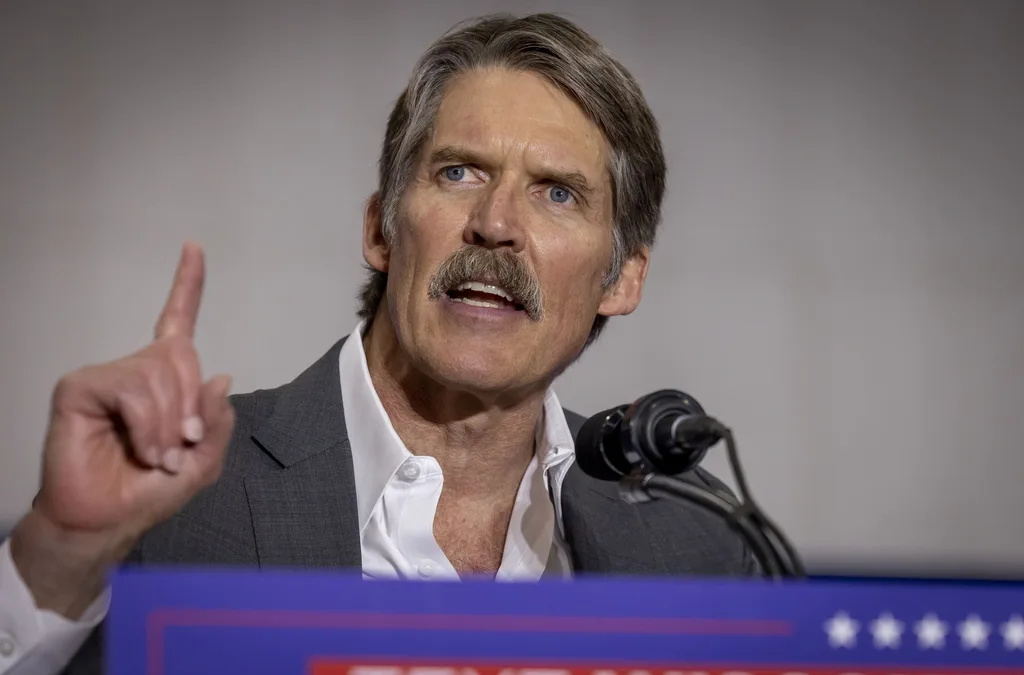
Eric Hovde’s company exposed workers to dangerous chemicals, OSHA reports say
A Madison-based real estate company run by Wisconsin US Senate candidate Eric Hovde settled with the Occupational Safety and Health Administration...
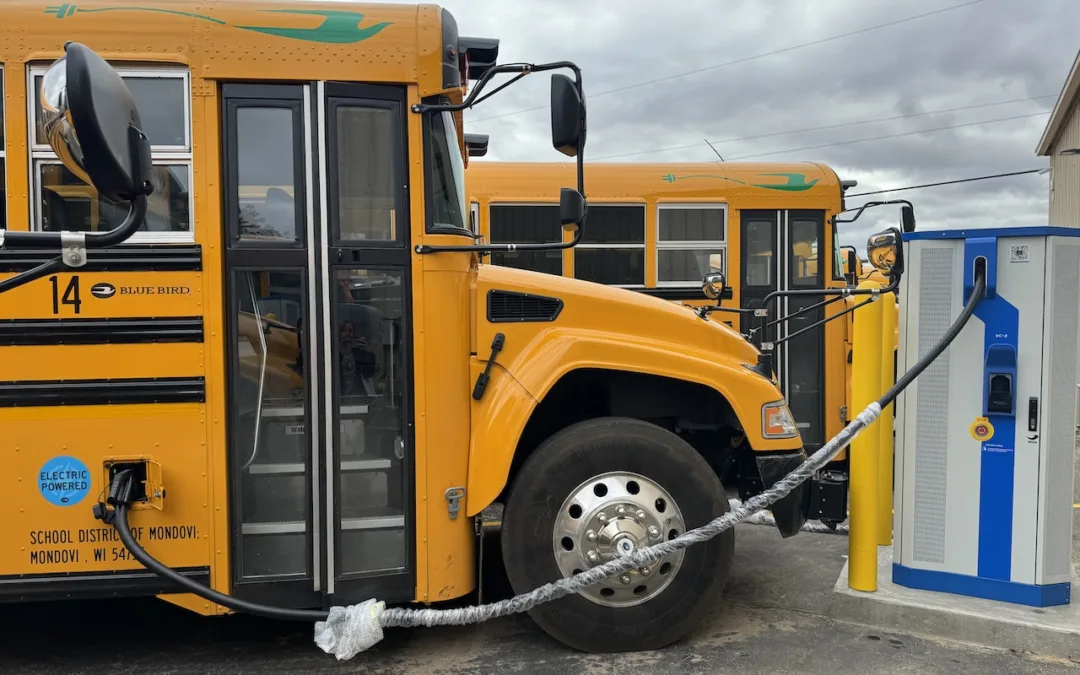
Plugged in: How one Wisconsin school bus driver likes his new electric bus
Electric school buses are gradually being rolled out across the state. They’re still big and yellow, but they’re not loud and don’t smell like...
Local News

Stop and smell these native Wisconsin flowers this Earth Day
Spring has sprung — and here in Wisconsin, the signs are everywhere! From warmer weather and longer days to birds returning to your backyard trees....

Your guide to the 2024 Blue Ox Music Festival in Eau Claire
Eau Claire and art go hand in hand. The city is home to a multitude of sculptures, murals, and music events — including several annual showcases,...



